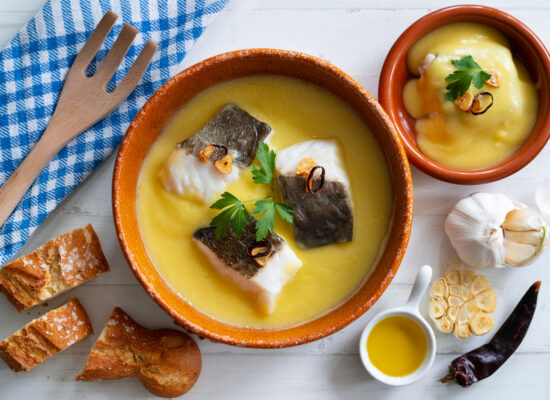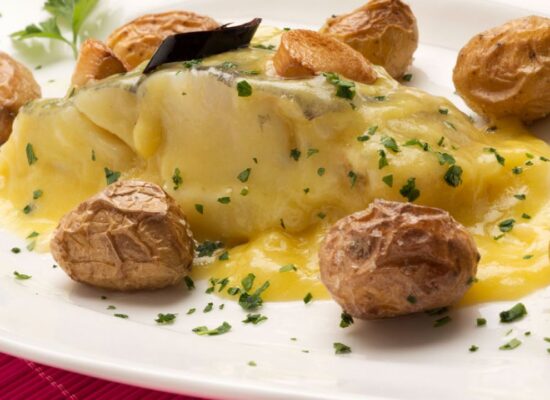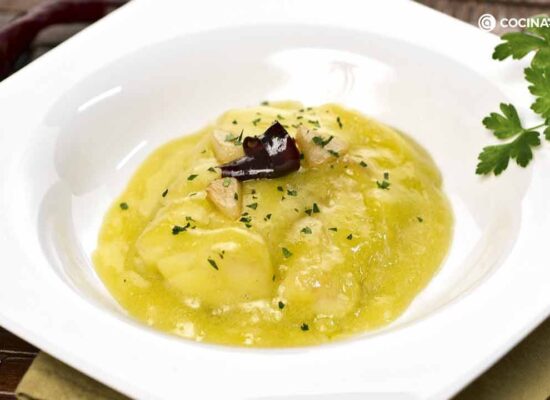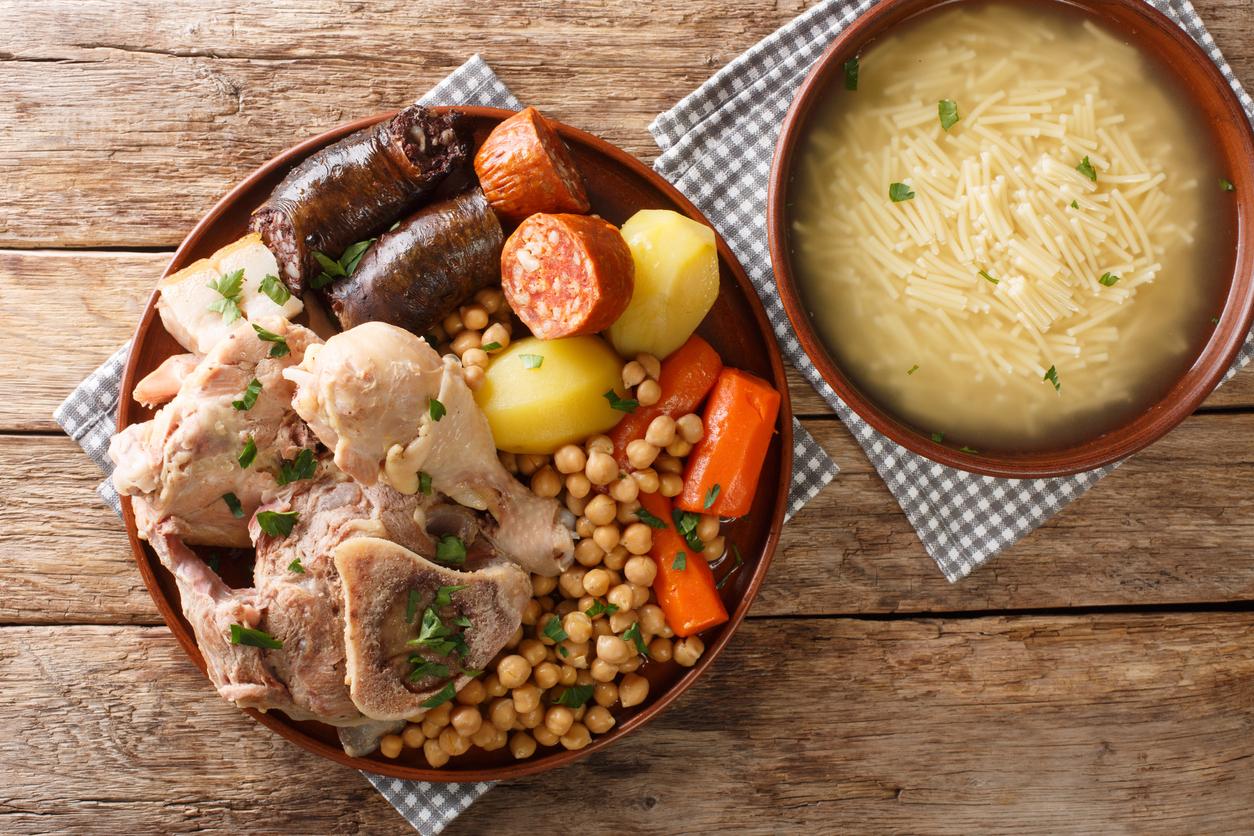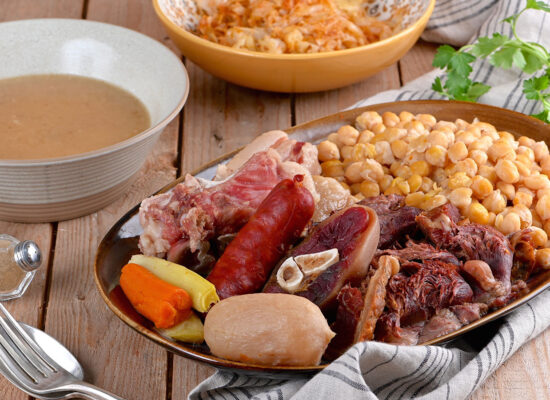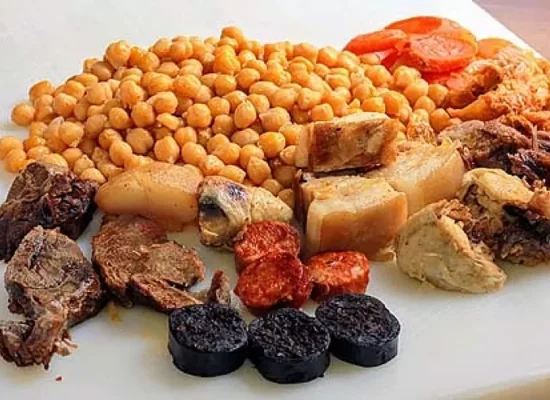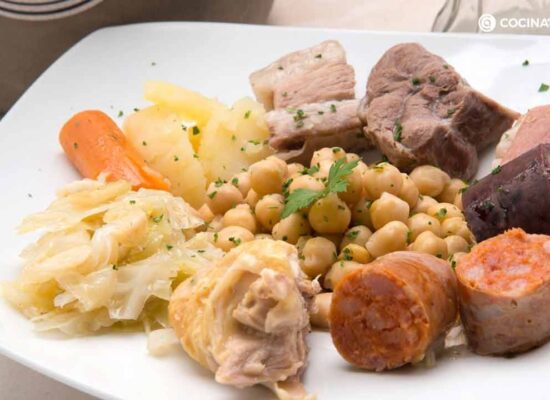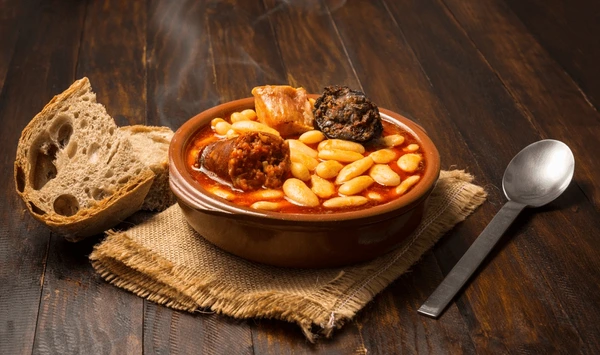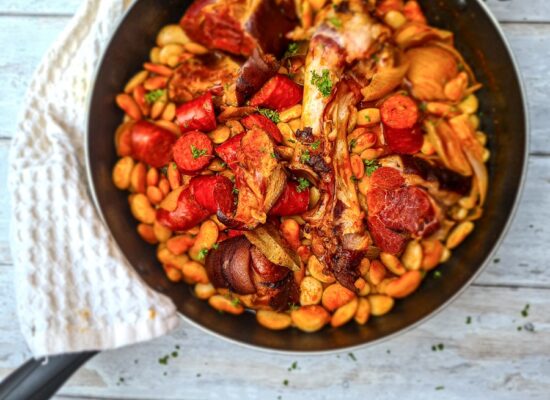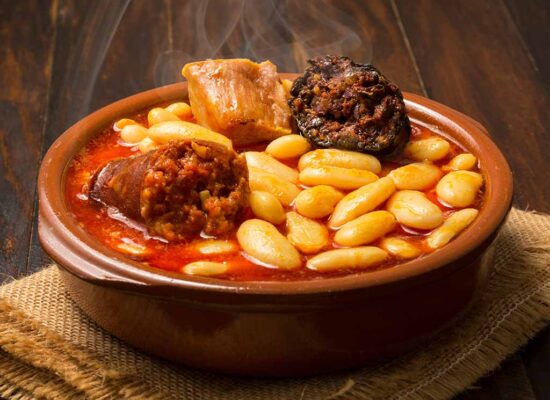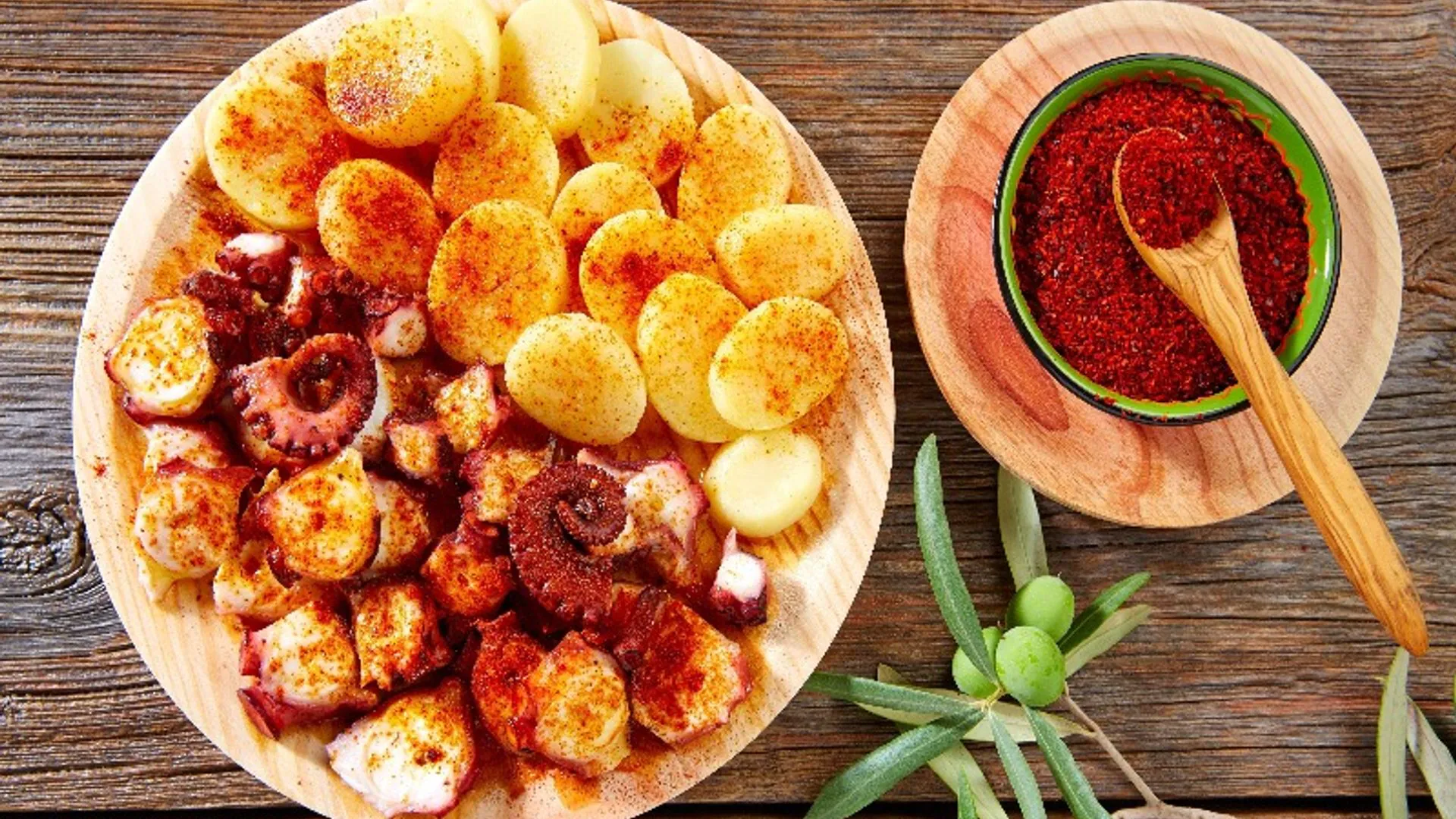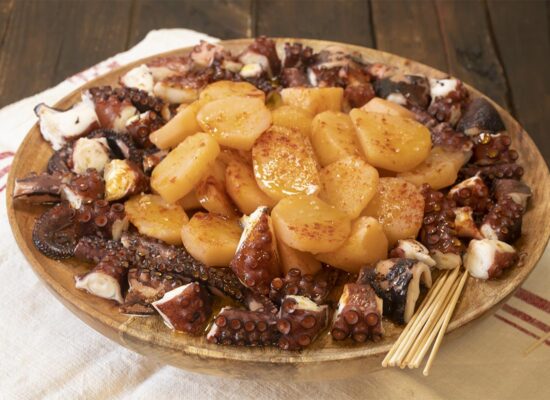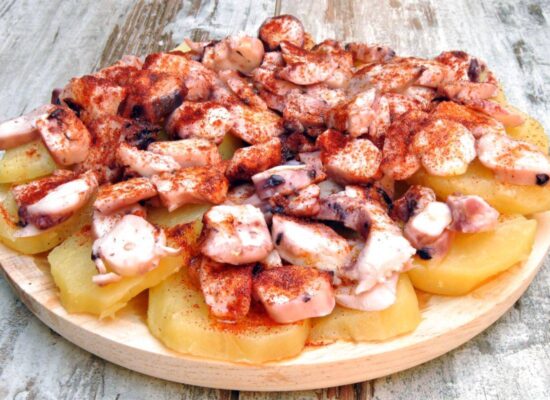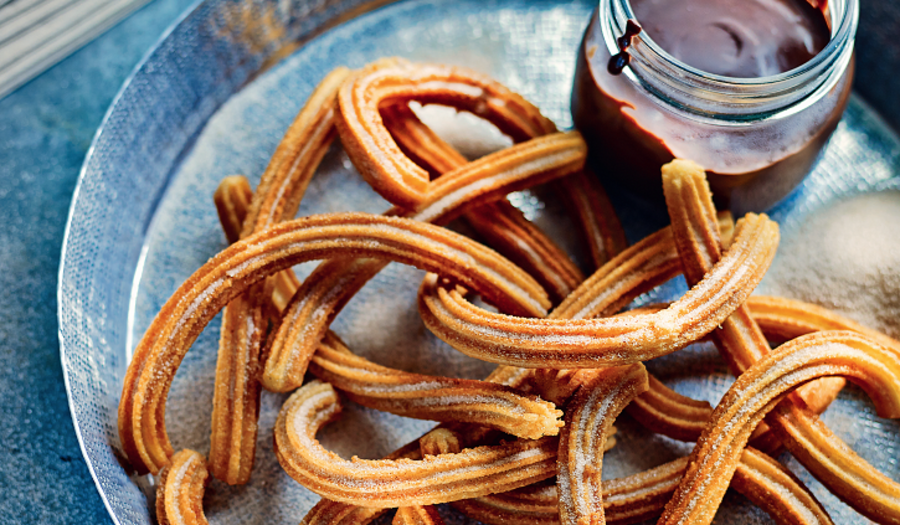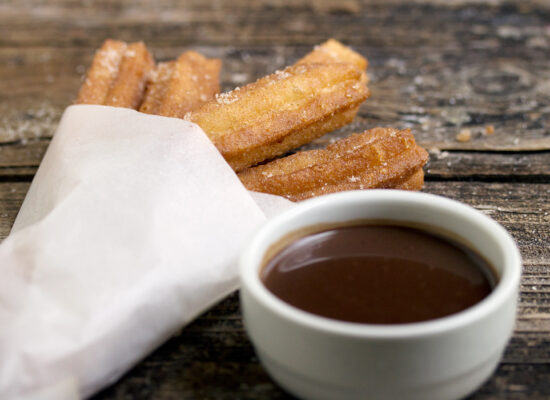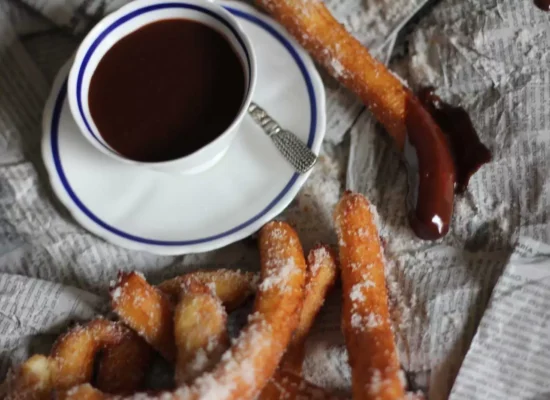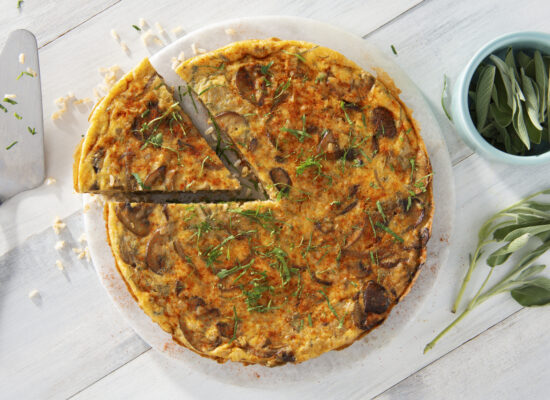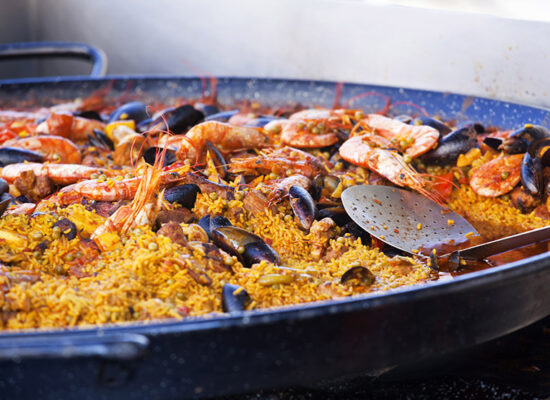Bacalao al Pil-Pil is a traditional Basque dish featuring salted cod cooked in garlic-infused olive oil. The dish is famous for its silky sauce, created by emulsifying the natural gelatin from the fish with the oil. Here’s the recipe to prepare Bacalao al Pil-Pil at home for six people.
Ingredients:
- 2 pounds salted cod fillets (Bacalao), desalted
- 6 cloves garlic, thinly sliced
- 1-2 dried red chili peppers, seeded and chopped (optional)
- 1 1/2 cups extra virgin olive oil
- Fresh parsley, chopped (for garnish)
Instructions:
1. Desalt the Cod:
- Soak Cod: Rinse the salted cod under cold water to remove surface salt. Then soak the cod in plenty of cold water for 24-48 hours, changing the water every 6-8 hours. The soaking time depends on the thickness and saltiness of the cod. Taste a small piece after soaking to ensure it’s adequately desalted.
2. Prepare the Ingredients:
- Drain and Dry: After desalting, drain the cod and pat it dry with paper towels.
- Prepare Garlic and Chilies: Slice the garlic thinly and chop the dried red chilies, if using.
3. Cook the Bacalao:
- Heat Oil: In a large, deep skillet or cazuela (clay pot), heat the olive oil over low heat.
- Fry Garlic and Chilies: Add the sliced garlic and chilies to the oil. Fry gently until the garlic turns golden, then remove them from the oil and set aside. Be careful not to burn the garlic.
- Cook Cod: Place the cod fillets skin-side down in the same oil. Cook gently over low heat, basting occasionally with the hot oil. Cook until the cod is tender and releases its gelatin, about 8-10 minutes. Turn the fillets once during cooking, being careful not to break them.
4. Make the Pil-Pil Sauce:
- Emulsify Sauce: Remove the cod from the skillet and set aside, keeping it warm. Use a circular motion to stir the oil and fish juices left in the pan, emulsifying them into a smooth, creamy sauce. You can use a strainer with a handle (a colander) or a gentle whisk to help emulsify the sauce.
- Combine and Serve: Return the cod fillets to the sauce, spooning some of the sauce over them. Top with the reserved garlic and chili slices.
5. Garnish and Serve:
- Garnish: Garnish with chopped fresh parsley.
- Serve: Serve the Bacalao al Pil-Pil hot, ideally with crusty bread or boiled potatoes on the side.
Tips:
- Desalting: The desalting process is crucial for this dish; make sure the cod is not overly salty by tasting it after soaking.
- Cooking Temperature: Maintain a low heat to avoid burning the garlic and to allow the cod’s gelatin to blend with the oil for the perfect sauce consistency.
- Variations: You can add a bit of pimentón (smoked paprika) for extra flavor.
Enjoy your Bacalao al Pil-Pil.
